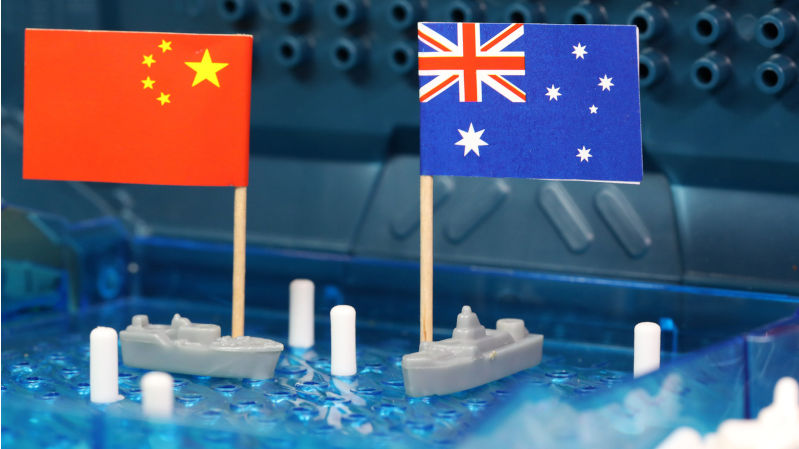Rethinking China
March 15, 2025
Just about everything that is uttered about China in the West is done so in the deeply underlying presumption that everyone out there, in the wonder lands of democratic Christendom, most assuredly believes that, as a godless communist state, China is inherently evil and that its singular ambition is to take over the world.
This, even though, to those who care to think about it, the world has long since been taken over by one of their blessed own — a non-communist, god-fearing, state — the US. Taken over in the most wantonly coercive and destructive manner the world has ever seen. A state which now, with a thousand or so ominously well-equipped military facilities around the world, just as wantonly projects an ever-constant readiness to assert military pressure in the pursuit of its political goals. And which uses the open seas and skies of the world more or less at will and without much care about adverse comment. Unless, of course, as has now become the exception, it insists on continuing this kind of posturing in the newly more complex and certainly less accommodating backyard of today’s China.
Given the now roiling uncertainties which the advent of Trump and Musk is infusing into a world order so profoundly constructed to suit the Americans, the time is right for a rethink.
Sure, the theory of communism suffered very severe, even deserved, setbacks when, at its outset in the tumultuous governing of the vast states of the USSR and China, incompetent thugs and bullies forced their way into power. Some did not start this way, but were converted. But, on the world stage, the biggest setback was developed and imposed by those who had been deposed and who had been so egregiously dispossessed of their power and their riches – namely the cohort of church, royals, landed gentry and burgeoning industrialists: the ones who had, over centuries of insidiously imposed indentured servitude virtually enslaved their working classes. In the one hundred or so years since then, these resurgent ruling classes have, elsewhere in the world, paved the consolidation of their ascendancy with relentless demonisation of the godless communists and thus their tyrannical threat to all of humanity.
Through its failure to break out of its Stalinist brand of communism, the USSR, now Russia, continues to satisfy this characterisation. China is, though, quite a different story. Where Gorbachev failed in Russia, Deng Xiaoping succeeded in China. Where the construct of Russia’s communist government stagnated into stout resistance of change, China’s governing has just as stoutly evolved into one in which inclusion now flourishes, overt authoritarianism is moderated, and coercion has virtually disappeared. A profoundly visible outcome of this is the growth of China’s middle class from around 133 million 20 years ago to one now approaching 900 million.
None of this is at all hard to see.
This is the vastly altered context of today’s emerging world order in which Australia’s politicians should be having a good and a seriously structured rethink about China. While it would require guts and offer others a few cheap shots, the available prospect of finding and promoting a better way forward is worthy.
In other words, rather than continuing on as snivelling vassals of the failing US, our politicians should now be taking the beckoning opportunity to infuse some strong doses of truth into Australian perceptions of, and relations with, China.
Such as in their reaction to the recent appearance in international waters off Australia of Chinese naval vessels… when it could have been pointed out that the Chinese had every right to be there, to conduct low-level firing drills without formal advance notification to anyone, and that the passage of these ships need not have been stalked by anyone. Instead, Albanese, Wong and Marles flip-flopped their ways through wishy-washy explanations that they assumed would, ever so cleverly, suit both the Americans and the Chinese – not to mention Peter Dutton.
Also, further to the related points so powerfully made in John Menadue’s piece on 7 March (‘The Aukus Chickens …’), the faux outrage expressed by Australia’s politicians and commentators every time China announces an increase to its defence budget might be, in a perfectly non-confrontational manner, simply noted. Which would be based on the facts that:
- China’s current defence budget is now at only around one third of the US; and,
- Rounding the respective budgets off at, say, $US300 and $US900 billion, the rates of spending come to $US214 for every Chinese citizen and $US2570 (!) for every American citizen.
Given new China’s now undeniable value to the world and given the emerging reconstruction of the US’ flagging world order, what on earth is the harm in acknowledging China’s right to a prudent measure of self-defence – virtually free, as it is, of complicated alliances such as those of the US (including ANZUS and AUKUS), which, in the hands of Washington’s new bully (bordering on thuggish) class are now looking so very fragile.
Further, given Australia’s extraordinary accommodation of significant American operational military bases in Australia, and the cringeworthy spectacle of our vassalage to Trump in the recent handover of $800 million for a dead-end submarine project, we can wonder about the extent to which China’s inscrutable patience in relation to Australia’s trading expectations can last.
The views expressed are solely those of the author and may or may not reflect those of Pearls and Irritations.


